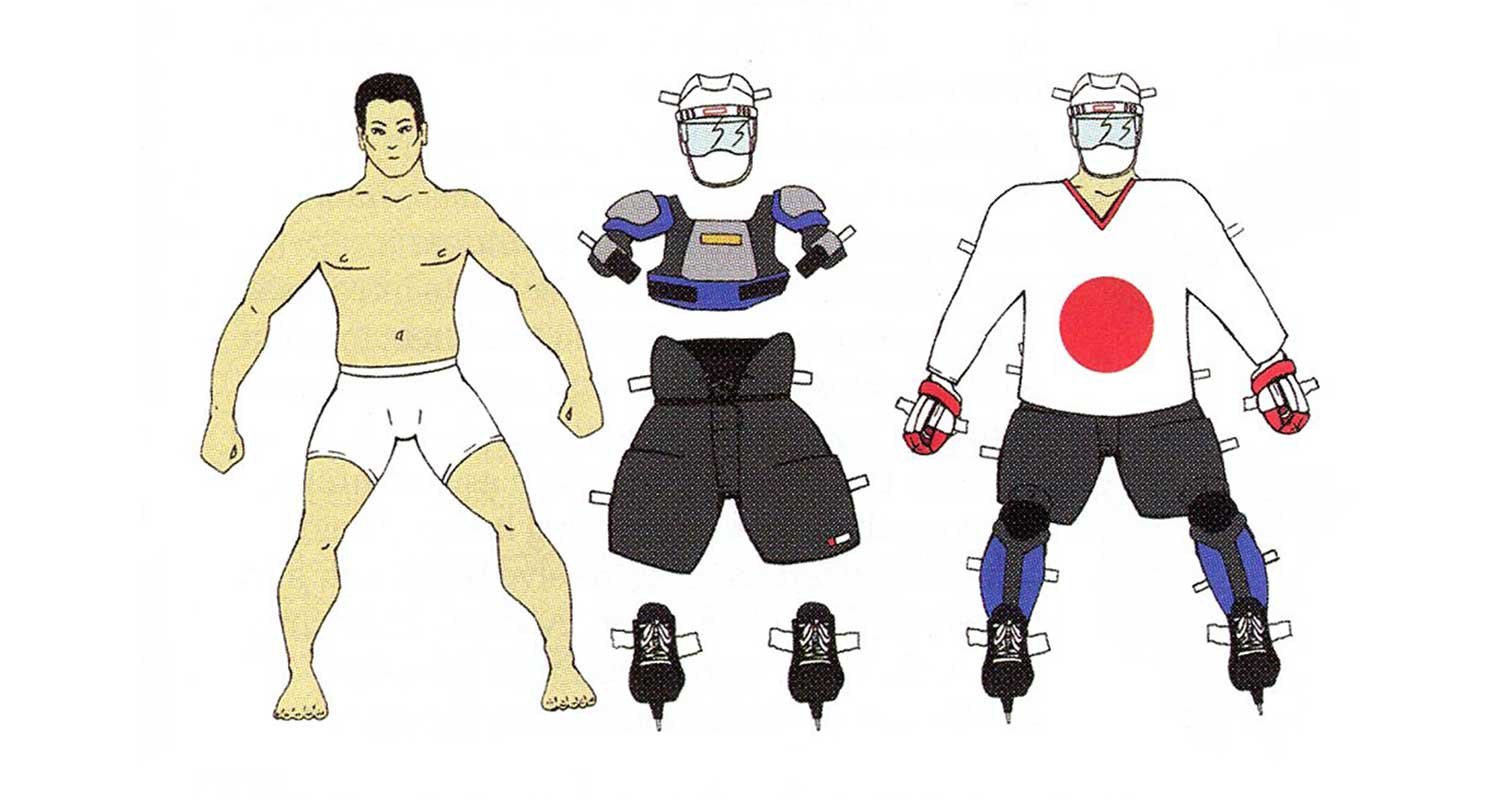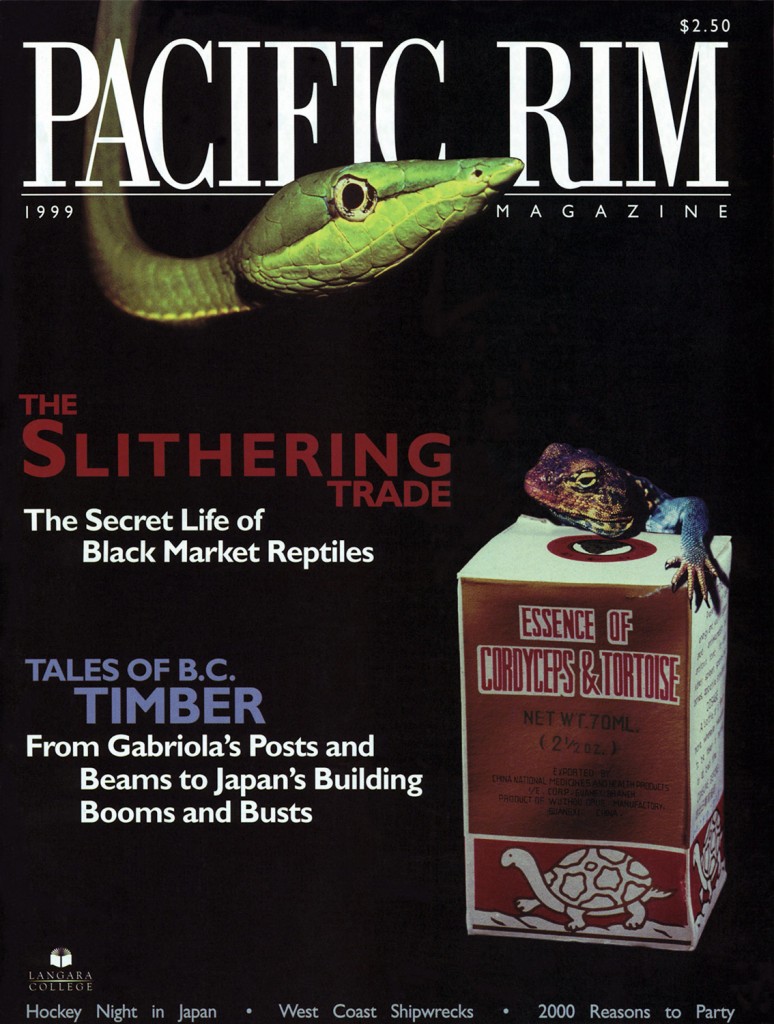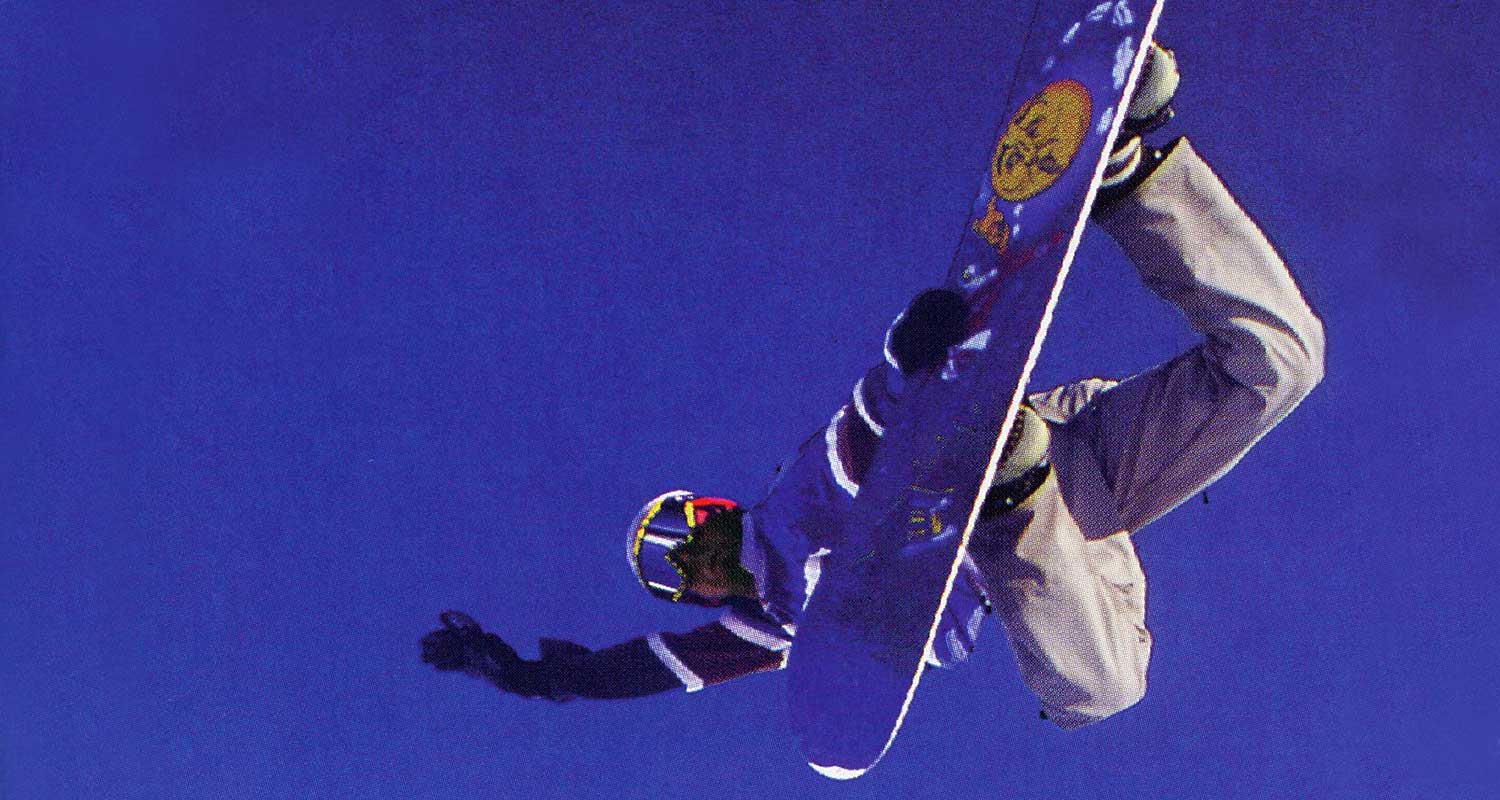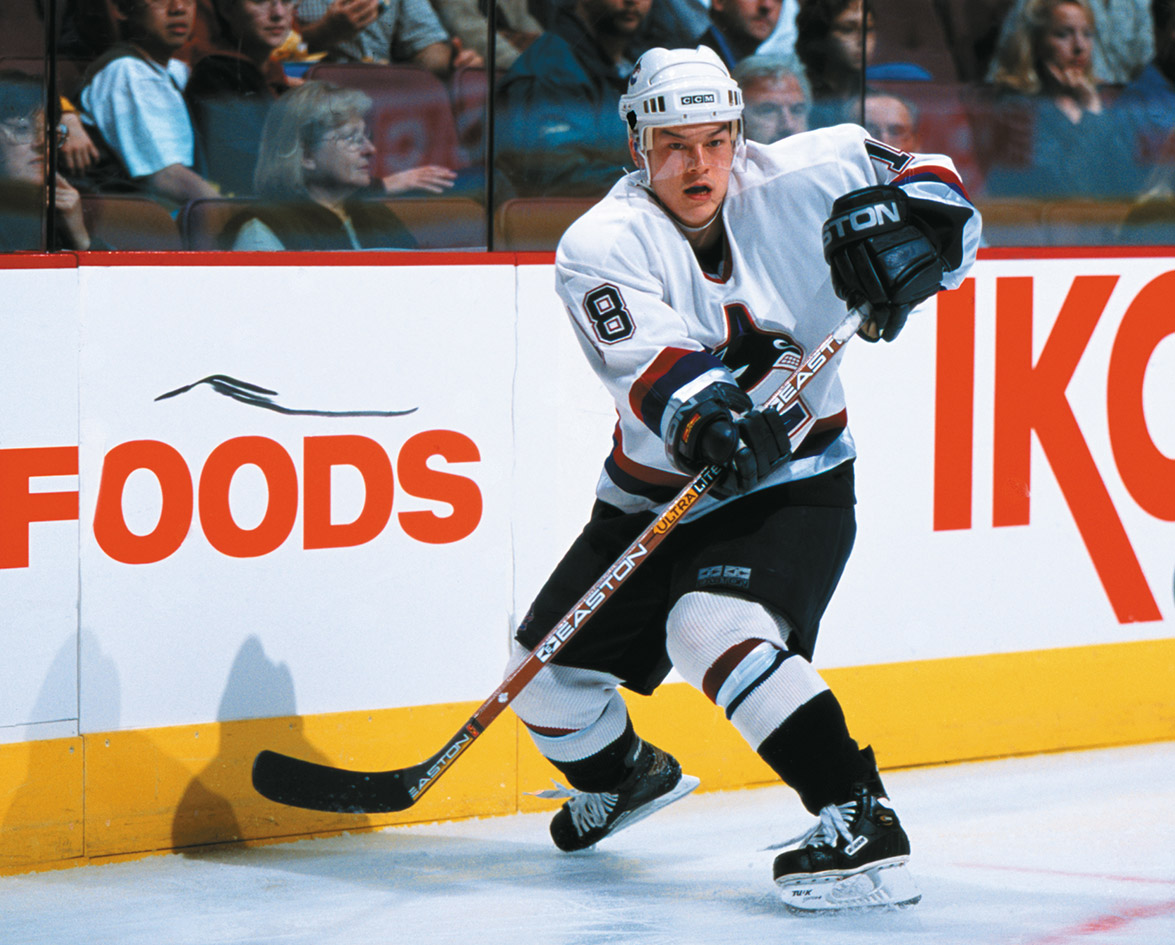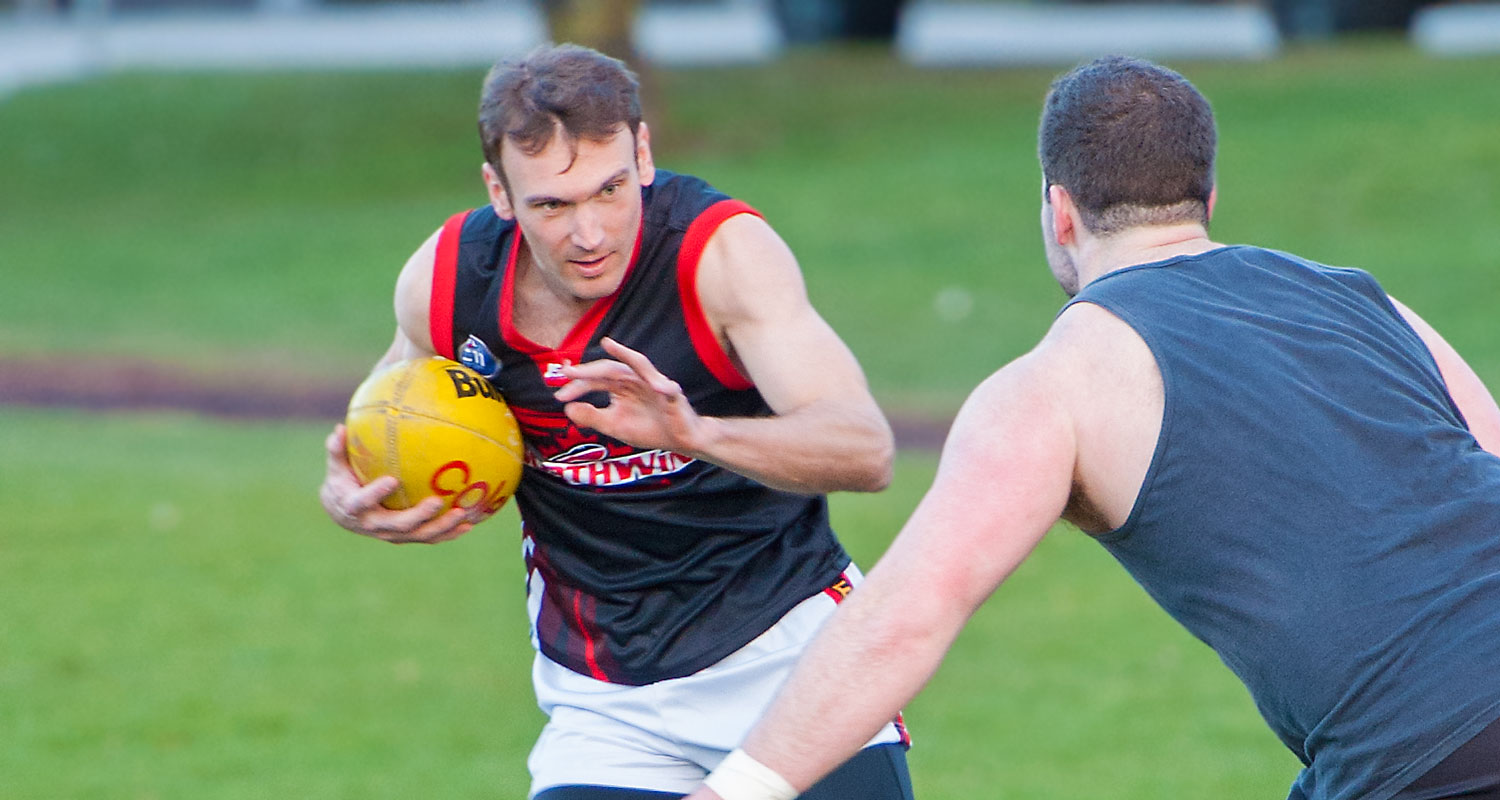With the millennium imminent, many of us will pause to reflect upon our pasts and futures. The National Hockey League is no different. And now, as hockey fans glue themselves to the playoffs, the NHL contemplates its future overseas. To do so, it must look all the way back to the start of the season. October 11, 1998. The San Jose Sharks and the Calgary Flames prepare to fly back from Japan after playing their first two 98/99 regular season games in Tokyo. This marks the second consecutive year that two National Hockey League teams have played their first two games in Tokyo’s Yoyogi arena, continuing the NHL enterprise known as GAME ONe. Last season, the Vancouver Canucks and the Anaheim Mighty Ducks opened the season with a two-game series in Tokyo, the first-ever NHL regular season games played outside of North America. And the timing is perfect. Hockey is currently enjoying widespread popularity the world over, including in Japan.
GAME ONe introduced the Japanese fans to NHL players and hockey like never before, setting the stage for the Nagano Winter Olympic Games in February. There has never been a better time for the NHL to broaden its audience by breaking into the lucrative Japanese market. League commissioner Gary Bettman, remarking on Japanese enthusiasm for NHL hockey and NHL players, qualified the trip as an opportunity to bring the game to more people throughout the Pacific Rim.
GAME ONe In 1997
GAME ONe 1997 was a resounding success. According to Frank Nakano, director of international marketing for the NHL, “The fans were very enthusiastic. They knew the game and cheered at the right times.” The league put on a festival known as Fanfest, similar to the one that accompanies all-star games in North America. Game tickets sold out in three hours, and before leaving, both former head coaches Tom Renney and Pierre Page expressed their delight with the experience.
Anything to do with Gretzky and Kariya was a big seller. The Japanese are knowledgeable hockey fans with specific player and team allegiances.
Superstar players such as Pavel Bure, Teemu Selanne, Mark Messier and Trevor Linden were particular fan favourites, making several public appearances during their stay, signing autographs and even conducting inline hockey clinics. To the fans’ delight, all four major stars scored goals in the series. Senior vice-president of hockey operations for the NHL at the time, Brian Burke, even raved, “this was a great trip. Not a good trip, not an OK trip – a great trip.”
However, GAME ONe merely whet the appetite of Japanese fans. The attraction at these Olympic Games was the first-ever appearance of NHL players in Olympic competition. In its opening week, the NHL Japan shop accommodated approximately 1,000 people per day, 60 per cent of which were Japanese nationals. Japanese fans were described by shop staff as “knowledgeable hockey fans with specific player and team allegiances.” Following the Team USA vs. Team Belarus game, an estimated 500 fans waited outside the tiny shop for well over an hour. The rest of the week, the shop consistently drew 150-fan-long lines. Anything to do with Wayne Gretzky or Mighty Ducks captain Paul Kariya was a big seller, numbered replica jersey selling for 14,800 yen – about $125 US. The best-selling national team jersey was easily Team Canada. The superstar-heavy team featured such favourites as Eric Lindros, Brendan Shanahan and Wayne Gretzky. Sadly though, the most popular player of both the Mighty Ducks and Team Canada, Paul Kariya, never played in either GAME ONe (unsigned at the time) or in the Olympics (unwell after a bad concussion).
The 1998 GAME ONe
It was at Nagano that NHL commissioner Gary Bettman announced the continuation of GAME ONe. Bettman seized the opportunity of Olympic hockey-mania to set the scene for the Sharks and Flames in October. The two teams would play in Tokyo’s Yoyogi arena, the same converted swim centre used by the Canucks and Ducks last season.
The drama of Olympic Men’s Hockey continued to the end. Favourites Team Canada and Team USA both went home without medals; Team Russia yielded the gold to underdog Team Czech Republic. Even after a childish display by members of Team USA (certain athletes trashed their quarters after being eliminated from the medal round), the Olympic Games scored another international success for the NHL. Currently, NHL games are scheduled for international broadcast in Africa, Asia and throughout Europe.
As for the Sharks and the Flames, both games resulted in ties. Although successful, the event did not enjoy the level of corporate support hoped for – presumably due to the economic downturn. Will the League continue GAME ONe in future seasons? Yes, according to Mr. Nakano, but not until the 2000/2001 season, and nothing is yet confirmed. Hockey expert and author Anthony R. Mastantuoni feels that the NHL “may look towards Europe in the future.” It makes sense, since the majority of the scheduled international broadcasts are scheduled across Europe, Europeans making up about a third of NHL players and European teams having taken all but one Olympic gold medal in men’s hockey since 1956. Mr. Nakano confirms the league’s interest in Europe.
However, this is not to the exclusion of Japan. Certain issues have arisen concerning the extent of traveling involved. For example, the San Jose Sharks, scheduled to play three days after their return, had to ask for more time off. The league agreed, but had to add extra games into their schedule later in the season. After all was said and done, the Sharks ended up with the longest uninterrupted road trip in NHL history. Situations like that can virtually ruin a team’s season. As such, the NHL needs to do some fine-tuning of the enterprise. Fortunately, they have a year to do it.





